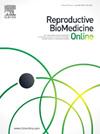Preconception carrier screening in couples seeking IVF: exploring the patient perspective
IF 3.5
2区 医学
Q1 OBSTETRICS & GYNECOLOGY
引用次数: 0
Abstract
Research question
What is the level of understanding, and what are the attitudes and considerations regarding preconception carrier screening (PCS) among couples seeking IVF or intracytoplasmic sperm injection (ICSI)?
Design
A mixed-methods design was used. Nine interviews were conducted with couples or individual partners (n = 16) who had an initial consultation for IVF/ICSI in the 2 years preceding this study. A questionnaire was completed by 115 participants. No actual PCS was offered.
Results
All interviewed couples expressed a positive attitude towards PCS, and over half of the respondents stated that they would pursue or seriously consider pursuing PCS if possible. Some couples falsely believed that PCS could identify a cause for their fertility problems and increase their chance of conceiving. The desire to make an informed reproductive decision was the most important argument in favour of PCS. The primary argument against PCS was the apprehension of being confronted with reproductive dilemmas. The longer the delay to IVF/ICSI treatment required to perform PCS, the more couples would be inclined to decline screening. Participants indicated that they would prefer to receive information about PCS from a medical specialist at an early stage in their IVF/ICSI treatment.
Conclusion
Although attitudes towards PCS were generally positive, some concerns were raised about treatment delays and potential reproductive dilemmas, and some couples had misconceptions about the purpose of screening within the context of their IVF/ICSI treatment. These findings highlight the importance of tailoring information and counselling to the specific needs of couples seeking IVF/ICSI.
寻求体外受精的夫妇的孕前携带者筛查:探索患者的观点。
研究问题:寻求体外受精或卵胞浆内单精子显微注射(ICSI)的夫妇对受孕前携带者筛查(PCS)的了解程度、态度和考虑因素是什么?采用混合方法设计。对在本研究之前两年内接受过试管婴儿/卵胞浆内单精子显微注射初次咨询的夫妇或个人伴侣(n = 16)进行了九次访谈。115 名参与者填写了调查问卷。没有提供实际的 PCS:所有受访夫妇都对 PCS 持积极态度,半数以上的受访者表示,如果可能,他们会采取或认真考虑采取 PCS。一些夫妇错误地认为 PCS 可以找出导致其生育问题的原因,从而增加受孕机会。希望做出知情的生育决定是支持 PCS 的最重要理由。反对 PCS 的主要理由是担心面临生育困境。进行 PCS 所需的 IVF/ICSI 治疗延迟时间越长,越多的夫妇倾向于拒绝筛查。参与者表示,他们更希望在试管婴儿/卵胞浆内单精子显微注射治疗的早期阶段从医学专家那里获得有关 PCS 的信息:尽管人们对 PCS 的态度总体上是积极的,但也有一些人对治疗延误和潜在的生殖困境表示担忧,而且一些夫妇对在 IVF/ICSI 治疗过程中进行筛查的目的存在误解。这些发现凸显了根据寻求体外受精/卵胞浆内单精子显微注射的夫妇的具体需求提供信息和咨询的重要性。
本文章由计算机程序翻译,如有差异,请以英文原文为准。
求助全文
约1分钟内获得全文
求助全文
来源期刊

Reproductive biomedicine online
医学-妇产科学
CiteScore
7.20
自引率
7.50%
发文量
391
审稿时长
50 days
期刊介绍:
Reproductive BioMedicine Online covers the formation, growth and differentiation of the human embryo. It is intended to bring to public attention new research on biological and clinical research on human reproduction and the human embryo including relevant studies on animals. It is published by a group of scientists and clinicians working in these fields of study. Its audience comprises researchers, clinicians, practitioners, academics and patients.
Context:
The period of human embryonic growth covered is between the formation of the primordial germ cells in the fetus until mid-pregnancy. High quality research on lower animals is included if it helps to clarify the human situation. Studies progressing to birth and later are published if they have a direct bearing on events in the earlier stages of pregnancy.
 求助内容:
求助内容: 应助结果提醒方式:
应助结果提醒方式:


